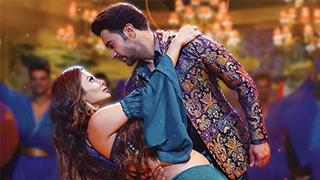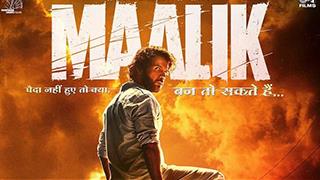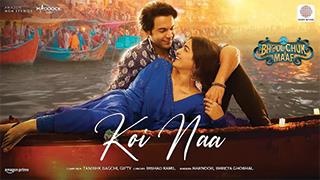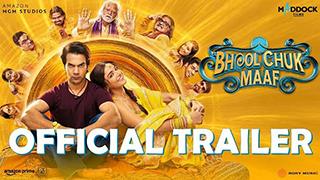Director: Karan Sharma
Rating: **½
Rajkummar Rao seems to have permanently pitched his tent in small-town India. Whether it’s Chanderi, Varanasi, or Rishikesh, his affinity for this setting is now a defining element of his filmography. Bhool Chuk Maaf, directed by Karan Sharma, tries to blend small-town charm with a time-loop comedy concept. The result? A film that oscillates between amusement and monotony.
The Plot: Love, Loops, and Letdowns
The story revolves around Ranjan Tiwari (Rajkummar Rao), a hopeful romantic ready to tie the knot with Titli (Wamiqa Gabbi). There’s just one problem—Titli’s father won’t allow the wedding unless Ranjan secures a government job. Enter Bhagwaan Das (Sanjay Mishra), a fixer with shady solutions. The job is arranged, and things seem smooth—until the day of the haldi repeats itself. Again. And again.
As Ranjan tries to make sense of his endless Groundhog Day, his attempts to explain the bizarre scenario fall on deaf ears. The premise is quirky and promising, but the film takes too long to establish its core conflict.
First Half: Dragged by a Sluggish Screenplay
The first half is painfully slow, taking forever to move beyond setup. Karan Sharma’s dialogues occasionally sparkle with wit, but the screenplay lacks rhythm. It leans heavily on Rajkummar Rao’s signature blend of exasperation and deadpan humour to carry the load. Unfortunately, it’s beginning to feel too familiar. His performance is still effective—but no longer refreshing.
Moreover, the film borrows heavily from the Maddock Films playbook, with recycled actors and overly familiar setups. Mimi, Luka Chuppi, and Teri Baaton Mein Aisa Uljha Jiya did it first, and often better. There’s little emotional chemistry among the ensemble cast, making the family dynamics feel flat and uninspired.
Post-Interval: Picks Up Steam, But Misses the Laughs
After the intermission, Bhool Chuk Maaf starts to gather momentum. The loop is finally addressed with urgency, and the pacing improves. However, the humour remains forced. The film struggles to find a natural comedic flow, resorting to predictable gags and overstretched punchlines.
The chemistry between Ranjan and Titli does slowly evolve, and Wamiqa Gabbi emerges as a charming presence with decent screen appeal. She taps into the “papa ki pari” trope effectively, providing a contrast to Rajkummar’s increasingly jaded energy.
The Climax: A Confused Moral Compass
Just when it looks like the film might end on a light-hearted note, it takes an unexpected detour into moral territory. The climax features an overwrought monologue about good versus evil, which feels entirely out of place in a supposed comedy. Instead of landing a satisfying punchline, the film decides to deliver a sermon.
This tonal shift is not only jarring, but also undercuts the comedic promise the film initially set out with. It’s a classic case of a movie unsure of its own identity.
Performances and Technical Aspects
Rajkummar Rao: Reliable but repetitive. His performance is polished, but his typecasting in small-town roles is becoming predictable.
Wamiqa Gabbi: Fresh and engaging, she shows potential and holds her own.
Sanjay Mishra & Raghubeer Yadav: Veteran charm adds moments of levity.
Music by Tanishk Baghchi: Serviceable in context but forgettable overall.
Visually, the film sticks to the rustic charm of small-town India, which is now a signature aesthetic of such comedies. However, there’s little innovation in cinematography or design to elevate the storytelling.
Final Verdict: A Loop of Clichés
Bhool Chuk Maaf tries to combine romance, comedy, and a time-loop twist, but ends up being a collage of recycled ideas and misfired intentions. It wants to be funny, meaningful, and different, but instead becomes a formulaic film that’s neither deeply emotional nor hilariously entertaining.
If you’re a fan of Rajkummar Rao and don’t mind treading familiar ground, this might give you a few mild chuckles. For everyone else, it’s a forgettable watch—more of a cinematic WhatsApp forward than a fresh original comedy.




















